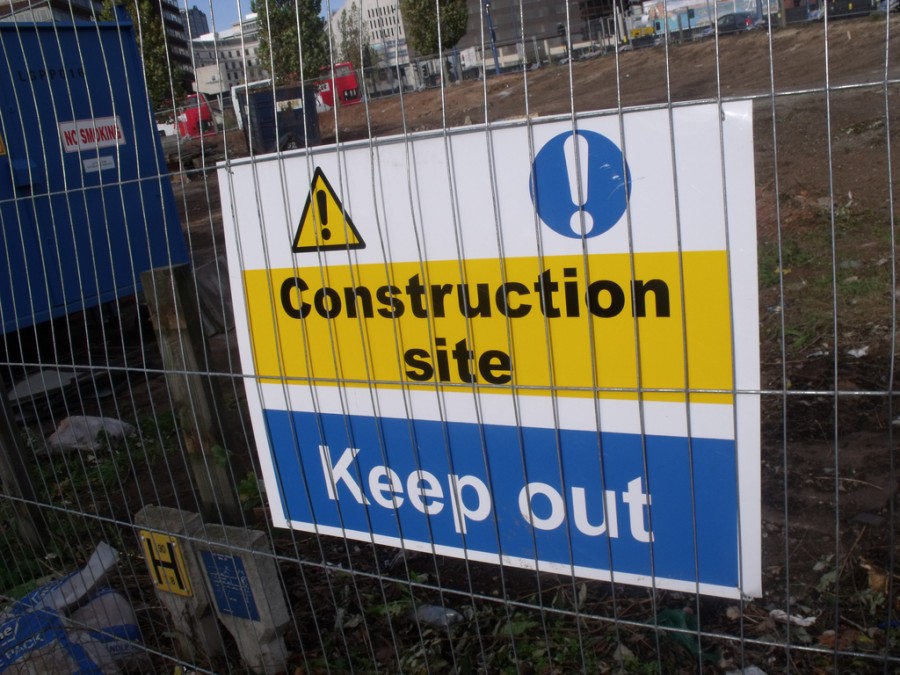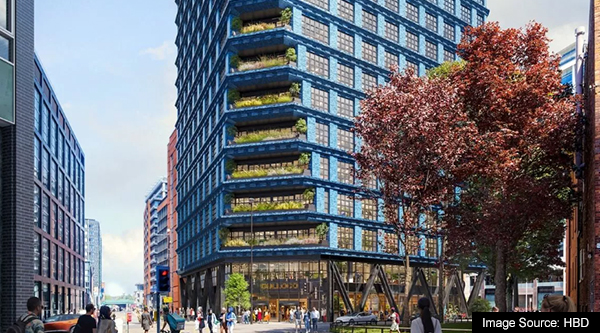Chancellor Kwasi Kwarteng has promised his Growth Plan unveiled at the end of last week will release the huge potential in the British economy by tackling high energy costs and inflation and delivering higher productivity and wages.
The plan sets the ambitious target for 2.5% trend of growth, securing sustainable funding for public services and improving living standards for everyone.
But the wider industry responded to the mini budget with a mixture of caution and concern. There was also frustration at the potential impact of some measures and the failure to include support to tackle other issues.
Describing the announcement as a missed opportunity, RIBA President, Simon Allford, said: “With a looming recession and worsening energy and climate crises – today was a pivotal opportunity for the new Government to provide reassurance.
“Whilst additional financial support for household energy bills will provide short-term relief, and new funding for energy efficiency improvements signals some progress, measures fall short of the National Retrofit Strategy we have been calling for. It’s a missed opportunity.

“Nevertheless, the Chancellor’s cancellation of the planned corporation tax rise will likely be welcomed by many of our members, and the Energy Bill Relief Scheme will also alleviate some of the costs of doing business in the short-term.
“We will continue to work with Government representatives and our counterparts across the sector to lobby for a UK-wide housing retrofit programme and champion the critical role of architects in delivering safe, well-designed spaces that support long-term wellbeing.”
Acknowledging the importance of tackling the cost of living crisis, Eddie Tuttle, Director of policy, public affairs and research at CIOB, said it was worrying that so much of the growth plan is consumer led and only for the short-term.
“The Chancellor’s cash-driven incentives will provide some much needed relief here and now but won’t solve the problem, and this deep-rooted long-term issue needs a long-term solution developed through joined up policy making,” he continued.
“We have for some time been calling on Government to implement a national retrofit strategy to improve the energy efficiency of UK homes, for example through better insulation and reducing heat loss from doors and windows. Hopefully, the announced reduction in stamp duty will free up cash for some home buyers and enable them to make such changes. These types of retrofit measures will drive down energy consumption and bills, while also improving the health and wellbeing of residents in the retrofitted homes. Such a strategy would also help contribute to the UK’s legally binding carbon targets, create new jobs, and deliver growth across the country. It should be noted however that not all retrofit schemes require expensive or disruptive work and simple home improvements and maintenance such as fitting draft excluders to doors and lagging pipes can all make a big difference.
“Our members are professionals from across the construction sector and they regularly tell us one of the biggest issues to tackling the cost of living crisis is the lack of available skilled workers to install and maintain more cost-efficient household energy systems. The industry will be a key component to help drive growth in the coming months yet well publicised issues and cost pressures in construction, alongside the threat of inflation and weak economic growth are potential challenges it needs to be able to plan for.
“The Government must learn from the failures of the Green Homes Grant, which failed to see significant uptake in part due to the focus on short termism and a lack of skilled individuals to deliver on scale. We recommend they invest in both long-term and immediate strategies to recruit, retain, and progress workers within the sector, and incentivise retrofit measures as a way to reduce energy bills, keep homes warm and tackle the net zero crisis.”
Gillian Charlesworth, CEO of the Building Research Establishment (BRE), was also disappointed to see that the mini-budget contained no measures to improve the energy efficiency of our homes and buildings. “While the Government’s Energy Price Guarantee is a welcome intervention to protect vulnerable households this winter, there is no guarantee that the volatile global gas market will steady any time soon,” she said.
“We need long term solutions to the energy price crisis which end our dependence on foreign supplies of fossil fuels, reduce overall energy demand, and support the drive to net zero.
“Retrofitting our building stock is an immediate and cost effective solution that can deliver this. Heat and energy use in our buildings makes up a quarter of the UK’s greenhouse gas emissions, and we are rapidly running out of time to address this if we are to meet our net zero obligations by 2050.
“Setting out a clear and credible plan to decarbonise our homes and buildings is an immediate step the Government can take to tackle the cost of living crisis, act on climate change and demonstrate global leadership.”
The Chancellor’s ‘Mini Budget’ with its strong emphasis on economic growth is a gamble but offers hope to small builders, says the Federation of Master Builders (FMB).
Brian Berry, Chief Executive of the FMB: “The strong focus to ‘get Britain building’ by unlocking government surplus land and extending the stamp duty threshold to help prospective house buyers is a welcome boost in a tough market. However, at a time when we are building fewer homes than needed, more action is required to boost delivery of more high quality homes from small, local builders.
“Although not announced by the Chancellor in his statement, we’re pleased to see a small step forward in improving the energy efficiency of homes in the Chancellor’s ‘Growth Plan’, which will incentivise energy companies to help customers upgrade their homes. However, what’s really needed now to boost local growth and skills is a fully fledged national retrofit strategy focusing on the UK’s 29 million leaky homes.”
UKGBC’s Chief Executive, Julie Hirigoyen, argued that the announcement from the Chancellor prioritised economic growth at the expense of crucial climate and environmental targets.
“The reality is that these objectives should not necessarily be at loggerheads – and a green recovery would achieve much needed economic, social and environmental goals all at the same time,” she explained.
“We welcome the Chancellor’s intentions to improve the efficiency and reduce the complexity of our planning system. Yet, it is vital that any planning reforms don’t create a free-for-all approach to new development at the expense of our legally binding climate commitments and nature recovery goals.
“Good regulation is welcome by industry, as it provides a level playing field for those who want to build high quality development. Without robust environmental safeguards in this deregulatory drive, developers and housebuilders are forced into a ‘race to the bottom’.
“Devolving greater power and decision-making capabilities to the regions – who know their local needs, industry and markets the best – is welcome, but there was a notable absence of protective measures on the environment within the Government’s proposed Investment Zones. The only way to sustainably grow the economy and put Britain on a competitive footing is to support green growth and the net zero economy. This will not be possible for businesses to achieve voluntarily, in the absence of policy certainty or alignment.
“Any new announcements on energy efficiency and reducing energy demand are entirely lacking in the Chancellor’s statement today, despite the country being in the grip of an energy and cost of living crisis. Instead of accelerating growth by boosting green industries to upgrade the nation’s homes and businesses, there’s a mere fig leaf of coverage to help address the poor quality of our building stock in the short term. The long term structural and financial plan required to address energy efficiency and high fuel bills in the longer term remains worryingly absent.
“Another missed opportunity was the government’s failure to align stamp duty to the energy performance of homes. This could have been a win-win for house buyers, energy security and the climate. Linking stamp duty cuts to home improvements such as fitting insulation and heat pumps would be a powerful incentive for homeowners to reduce their energy consumption and reduce our dependence on expensive oil and gas.
“UKGBC is working with industry and local authorities who will be at the forefront of delivering the millions of home upgrades needed, but that can only happen at scale with targeted Government funding for struggling households and local authorities and a national strategy.”




















